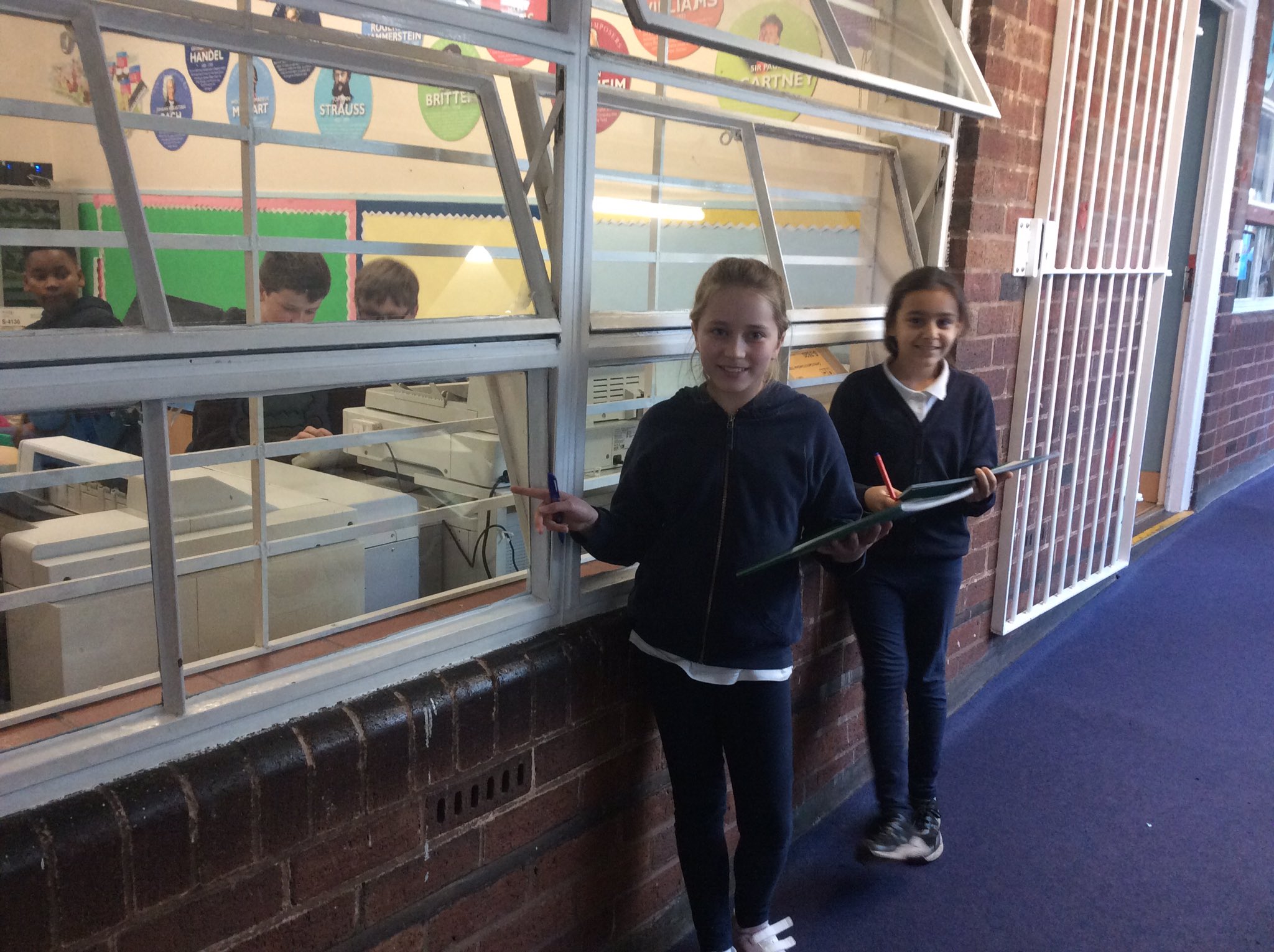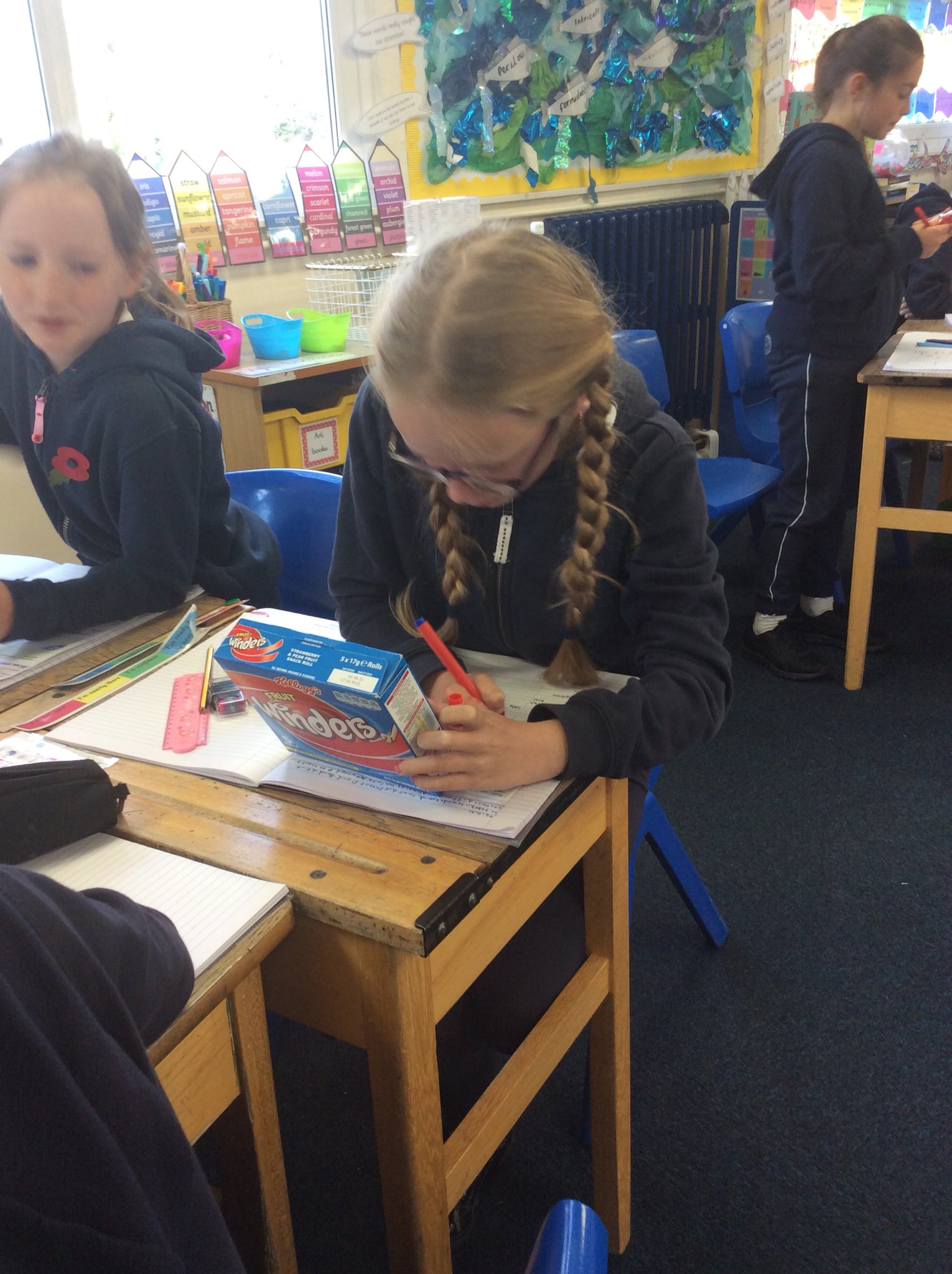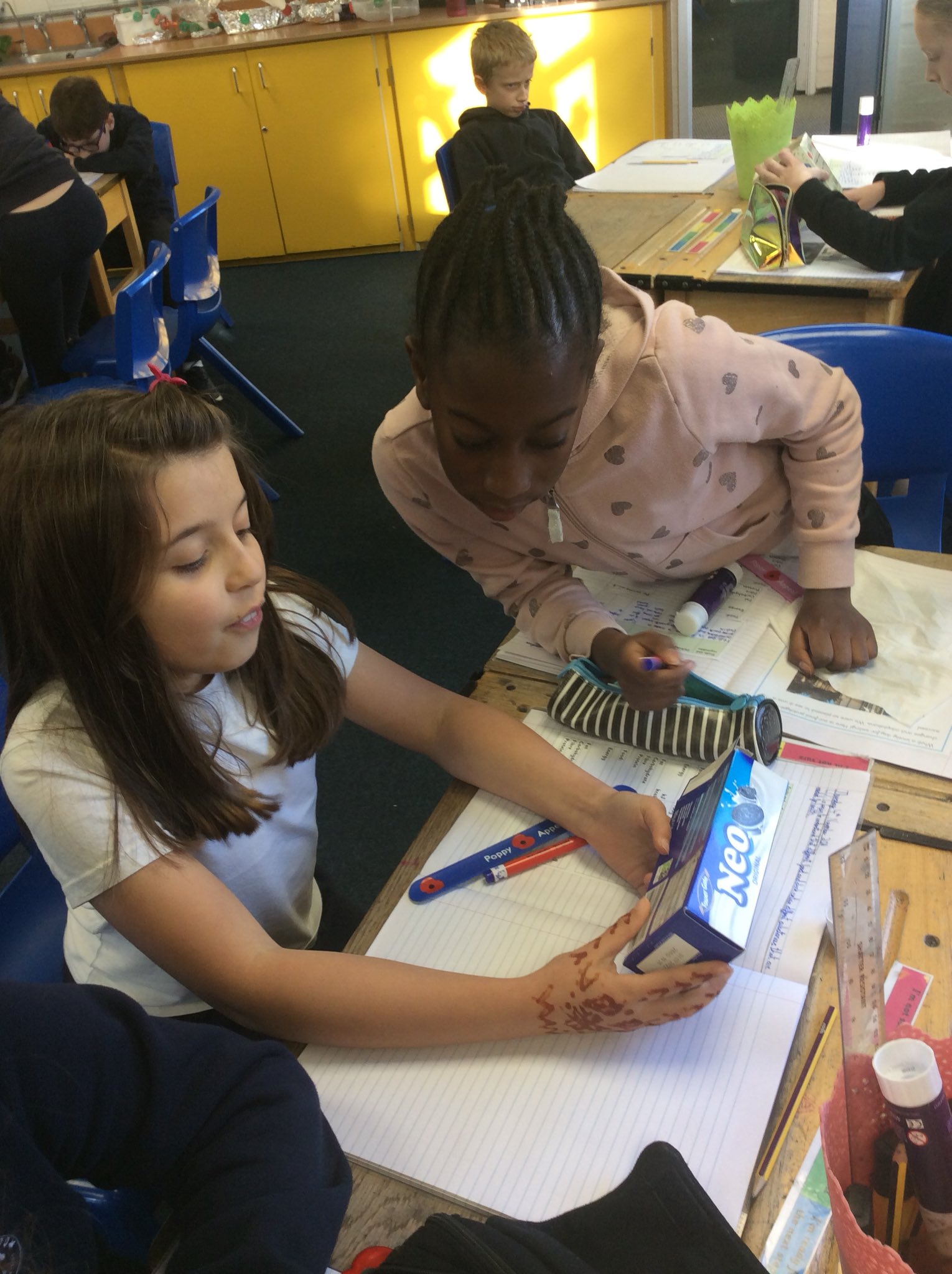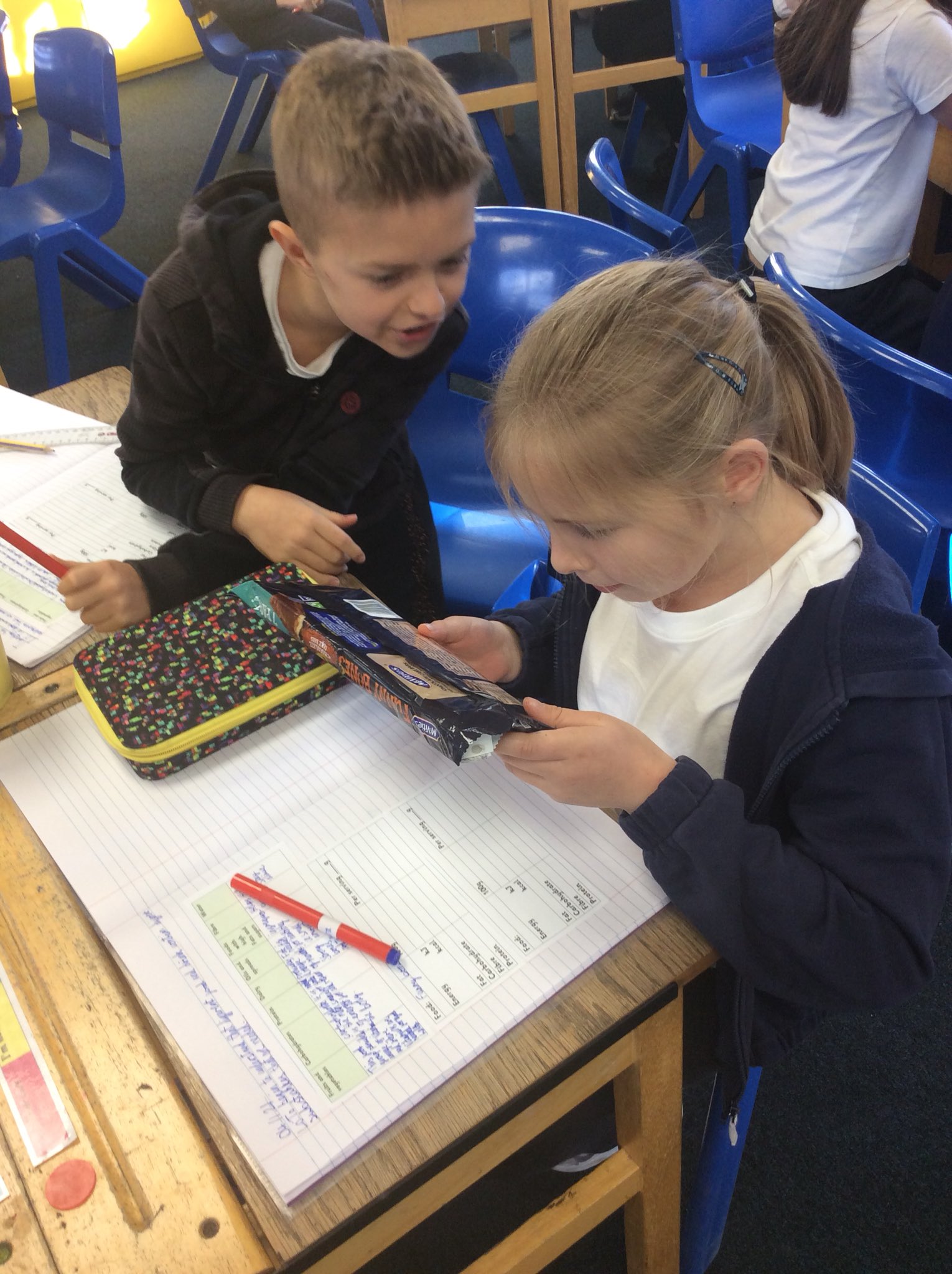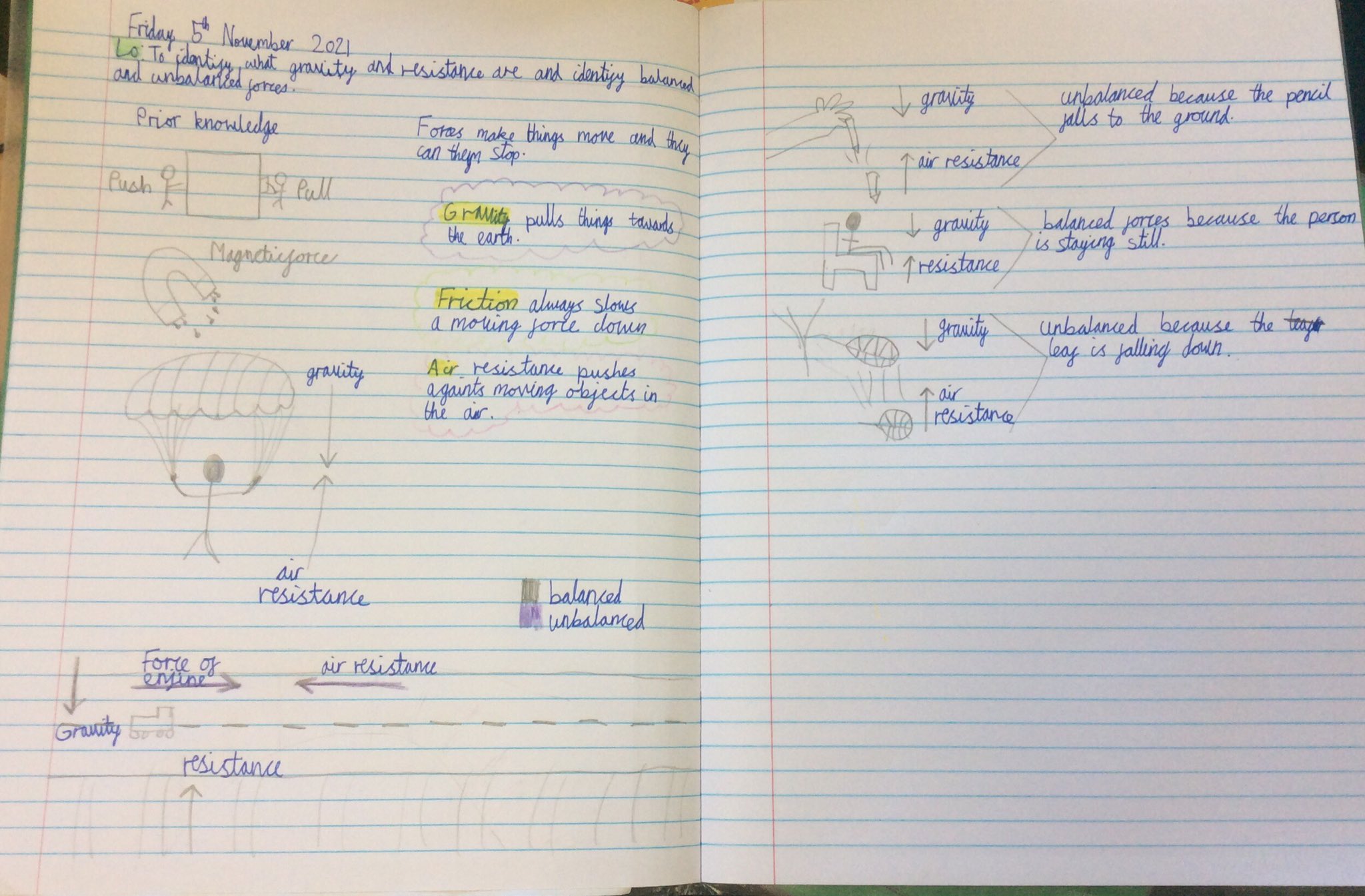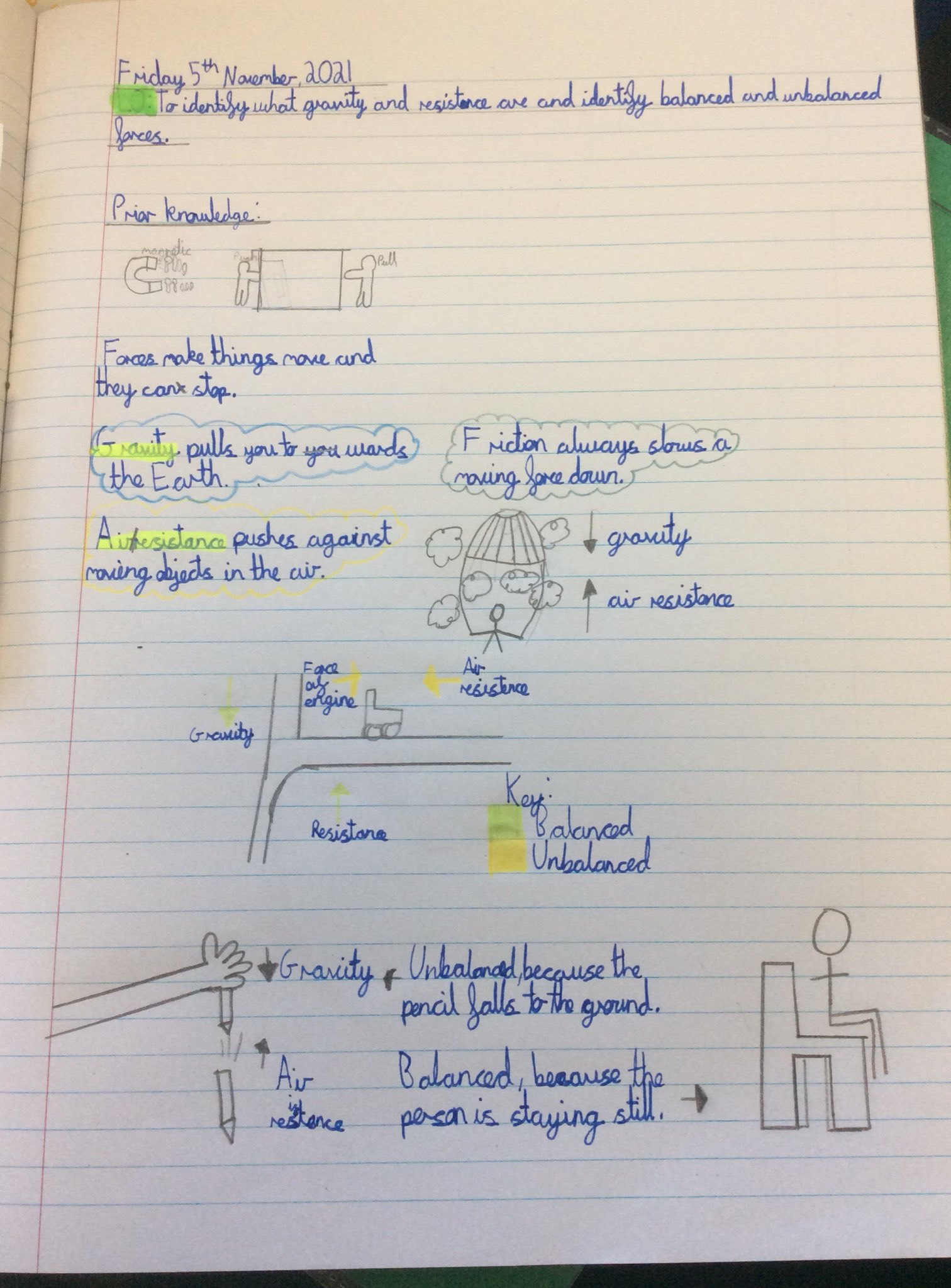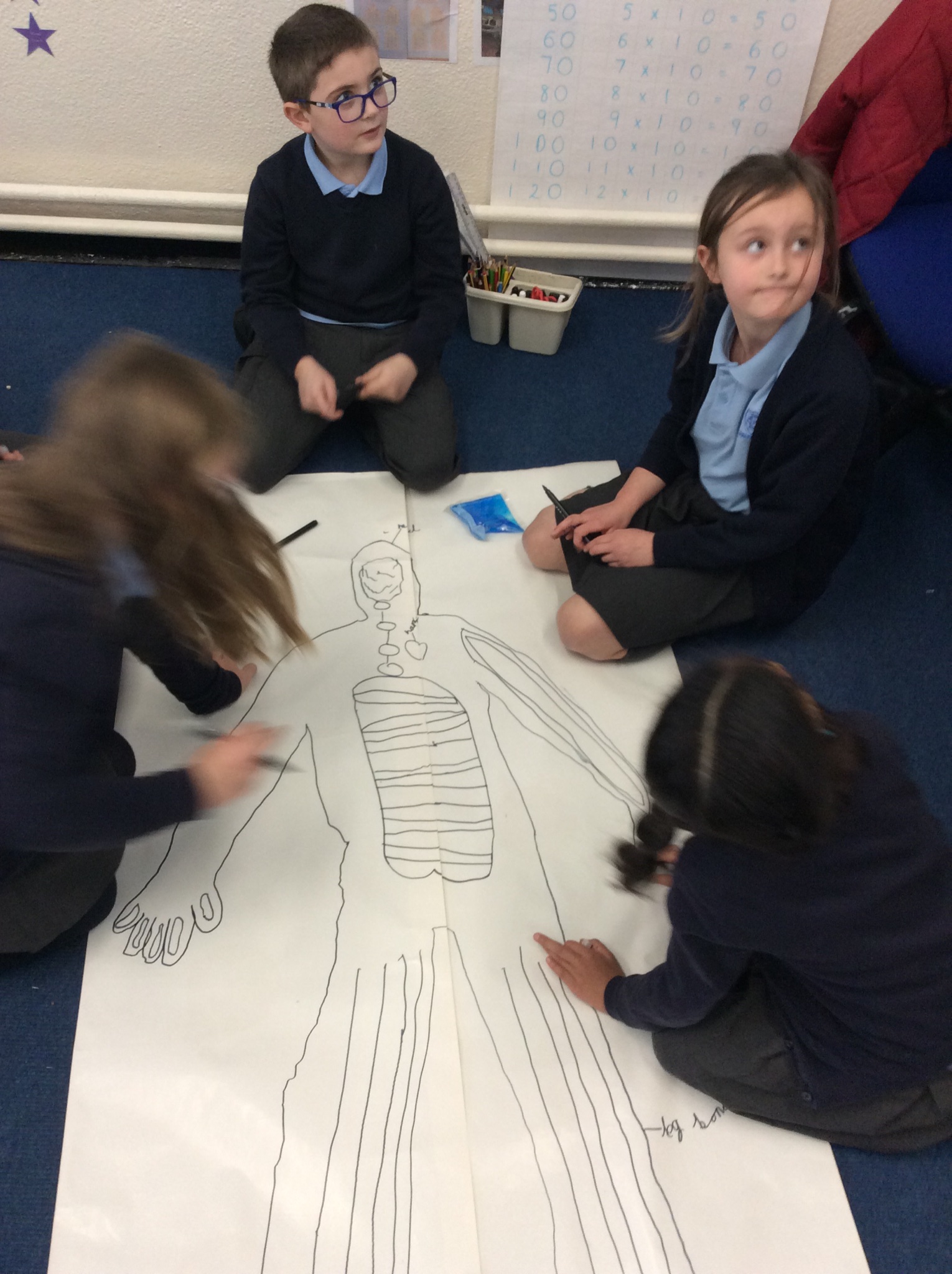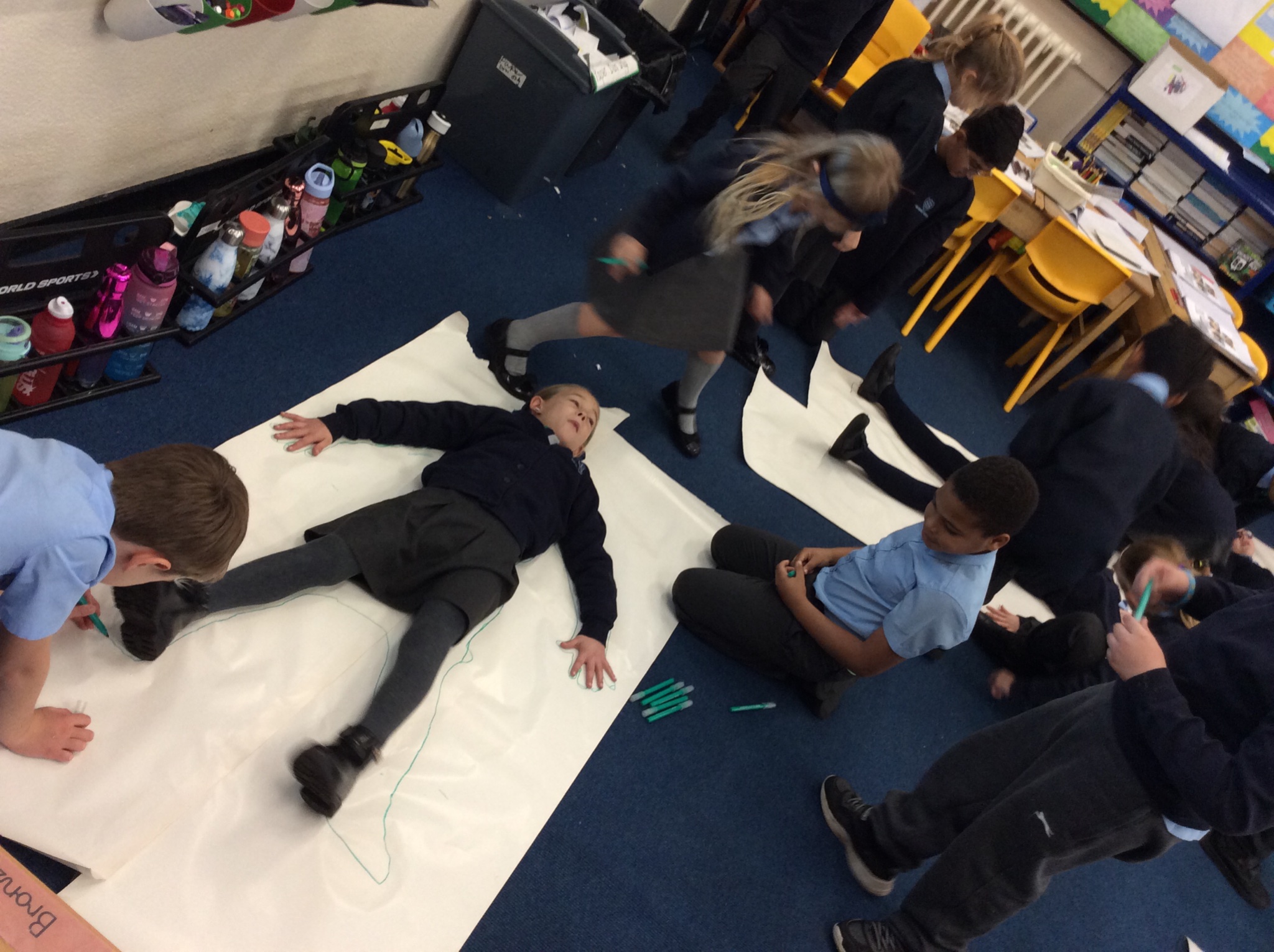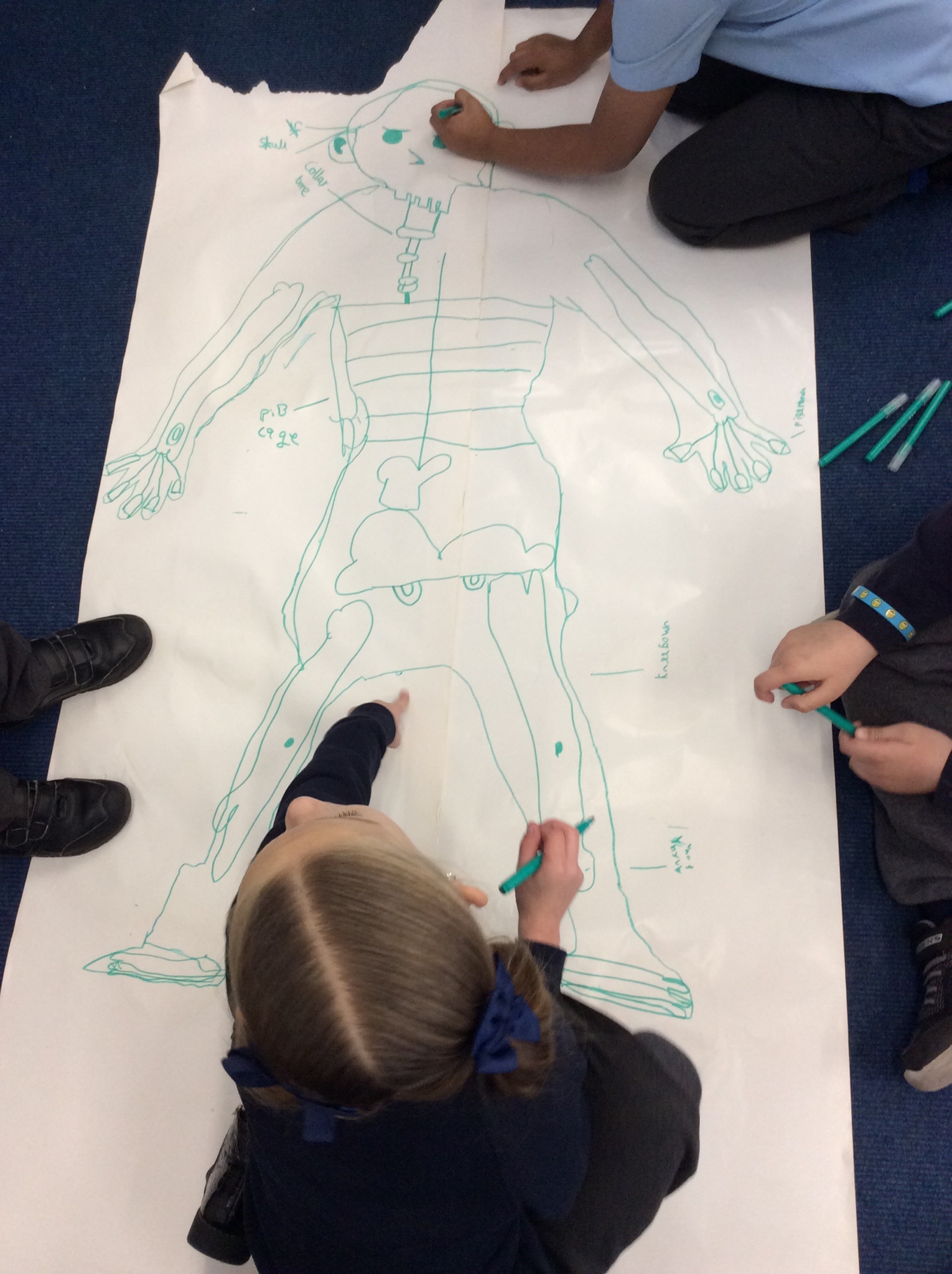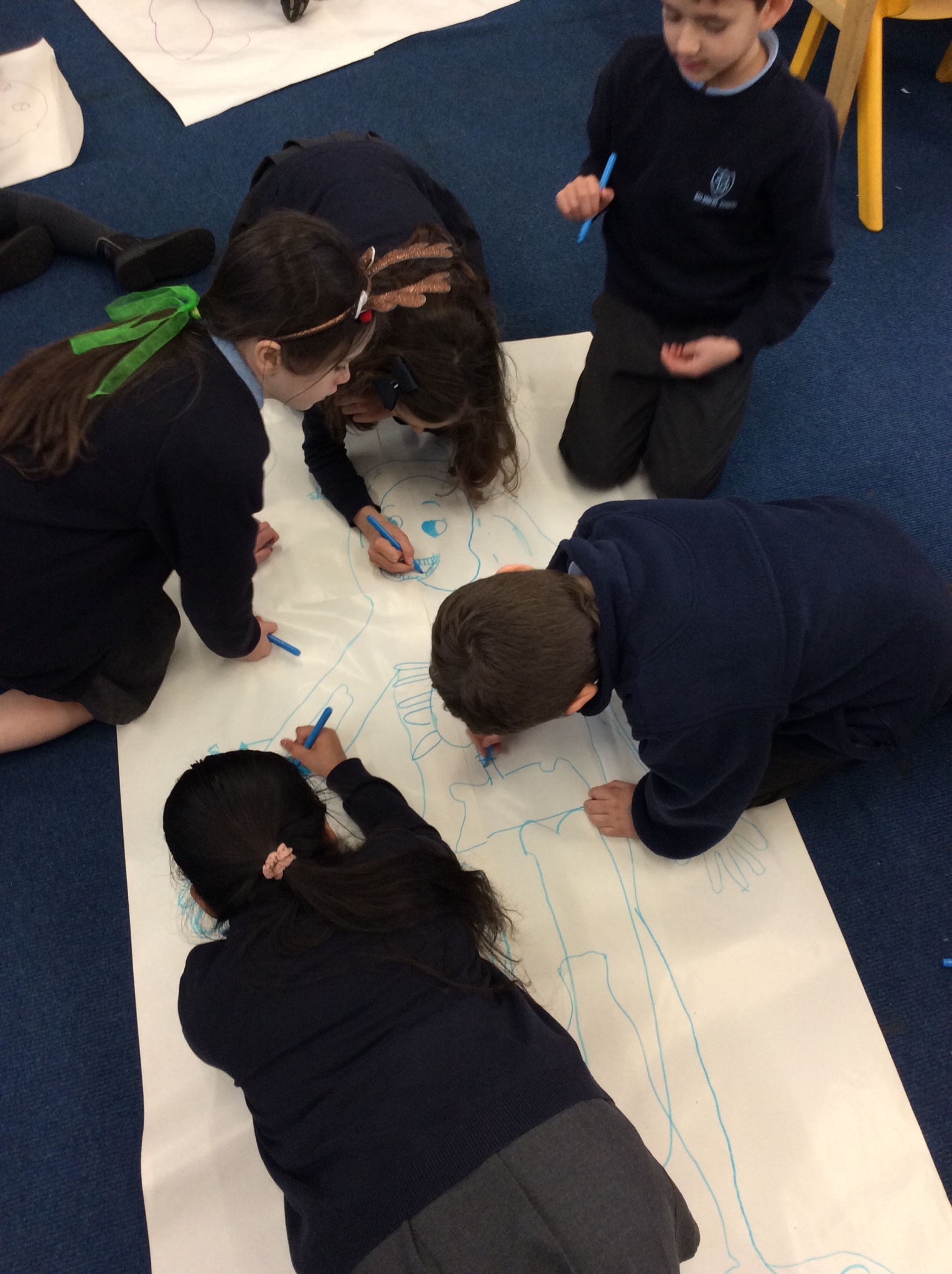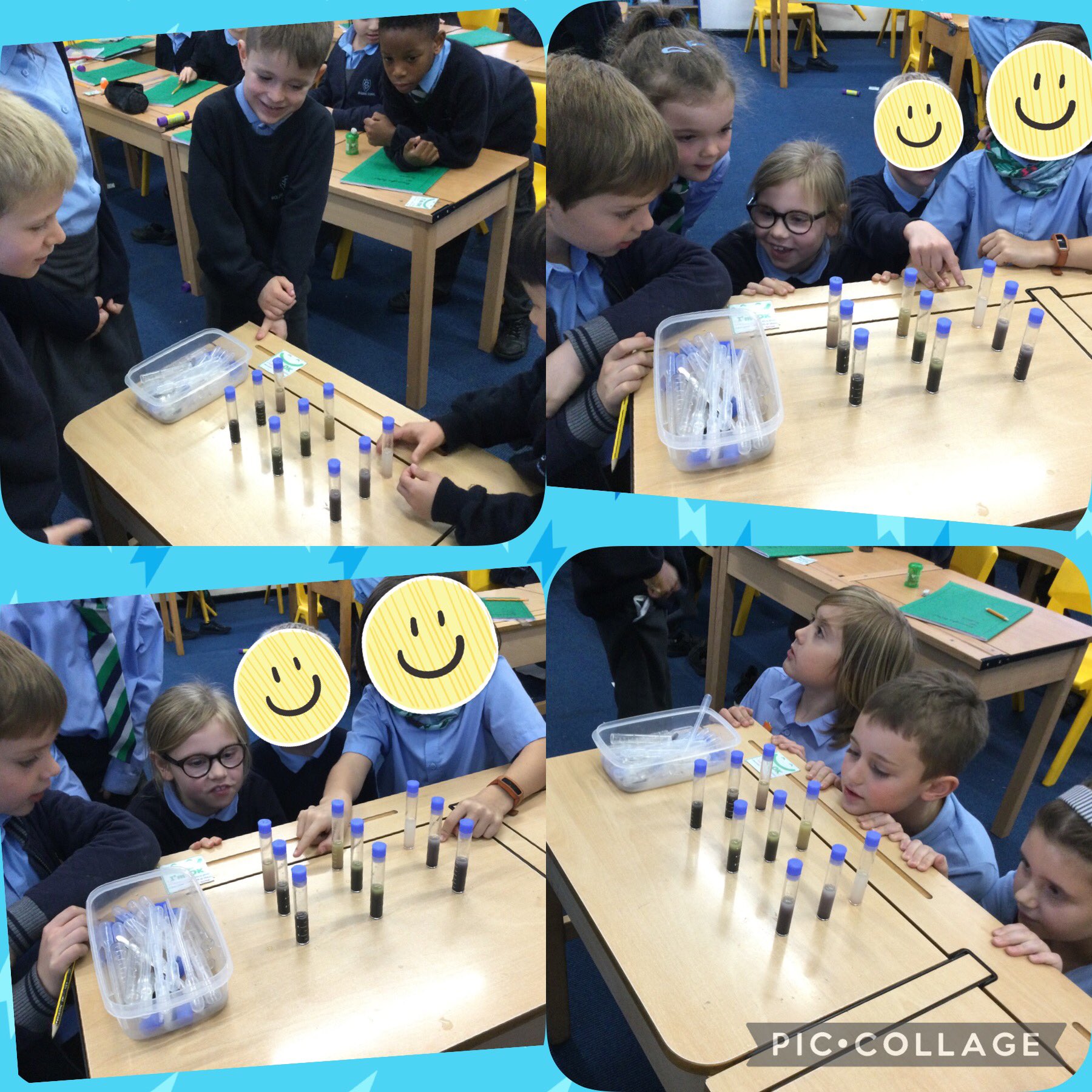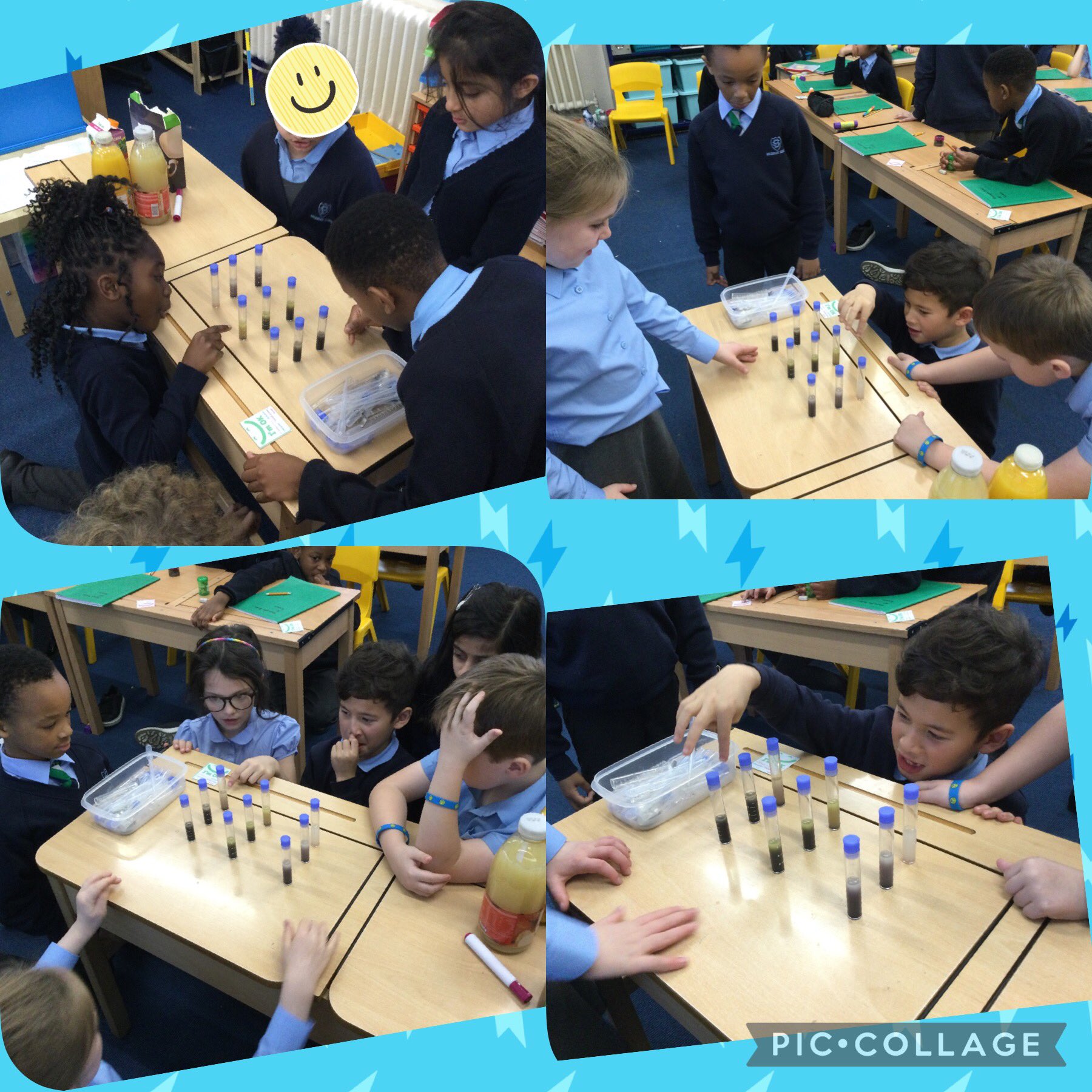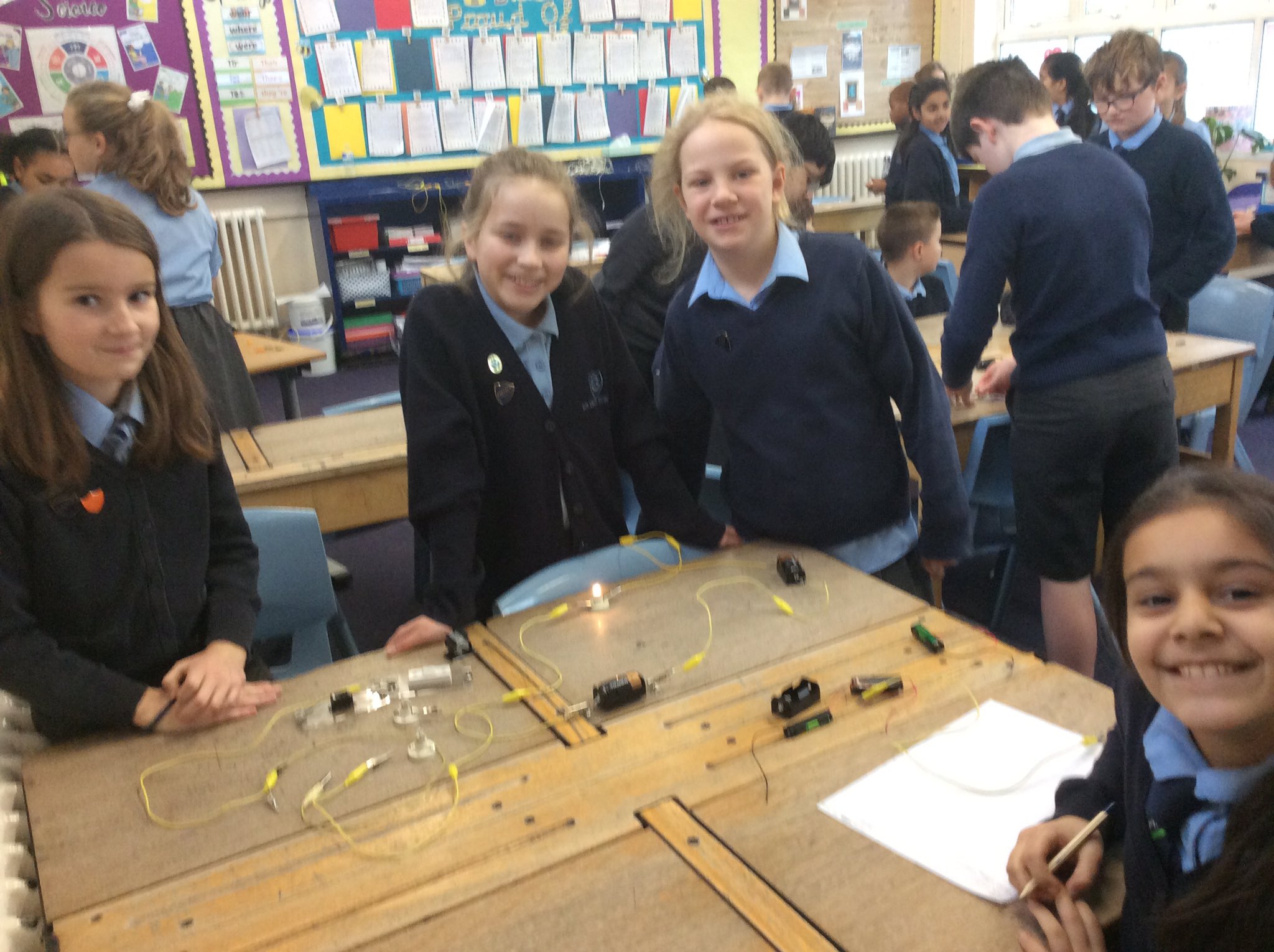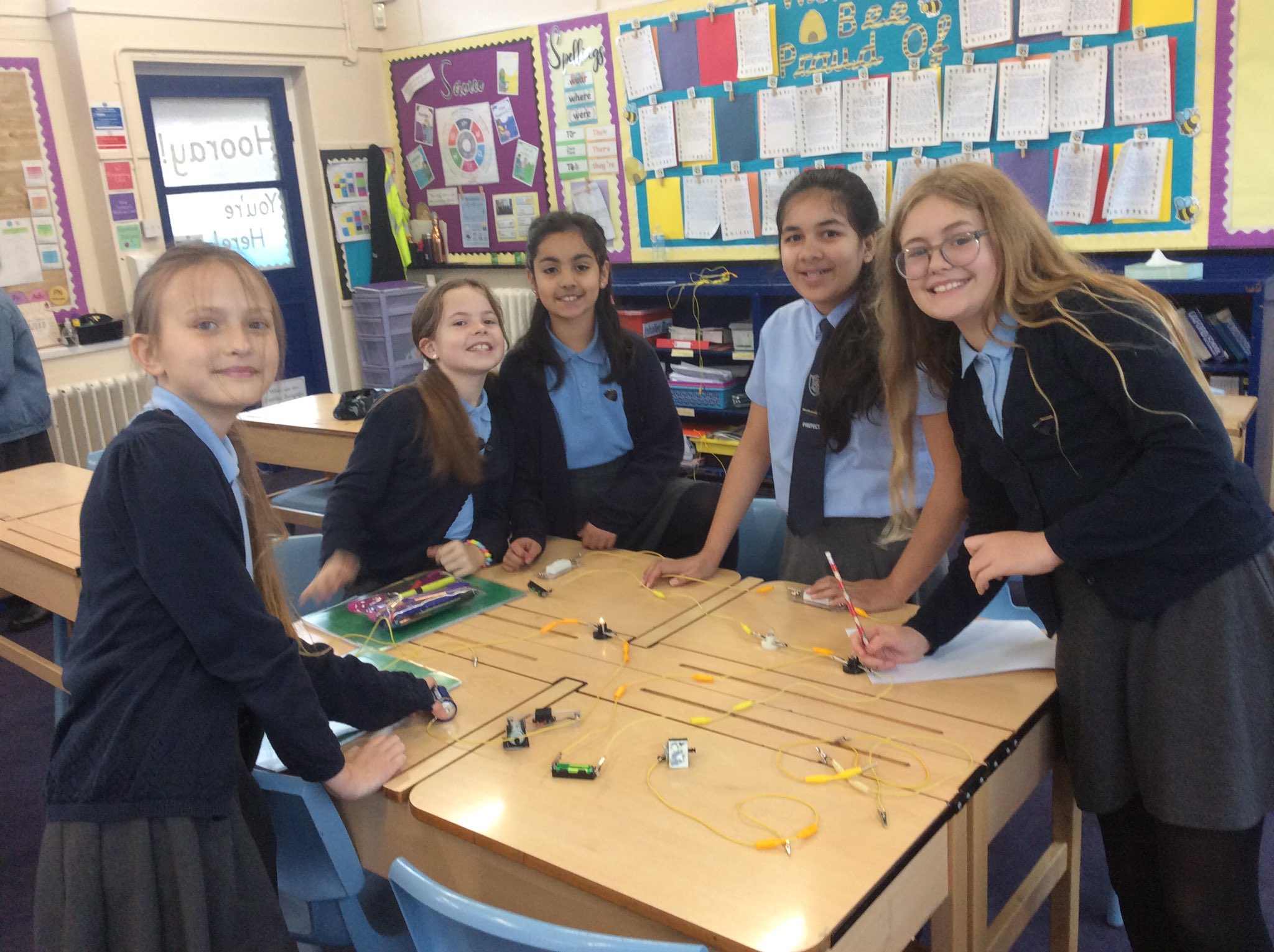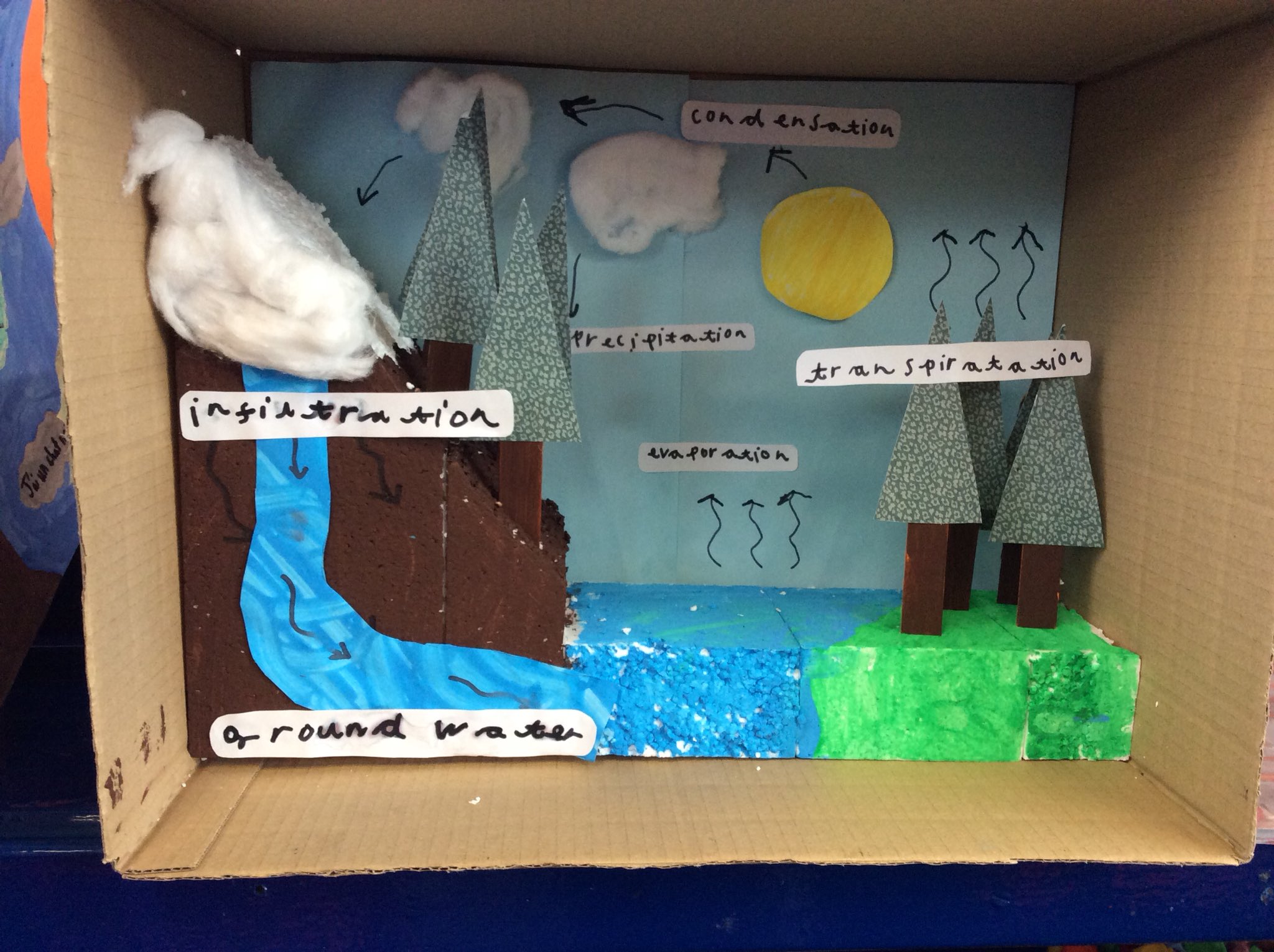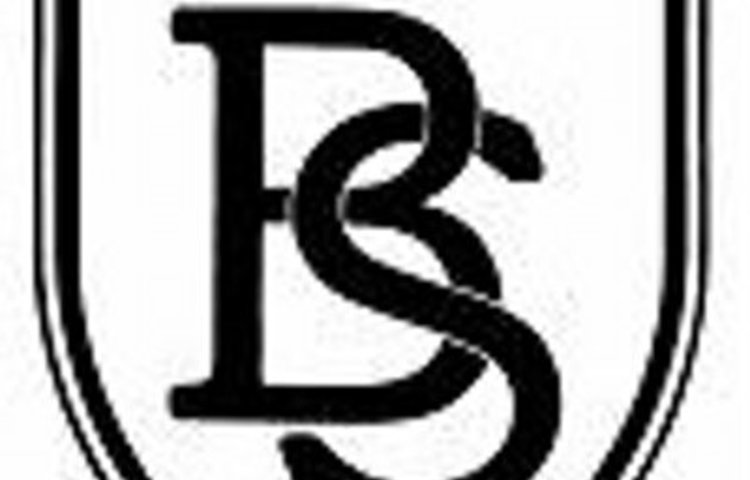Science
Science subject curriculum statement
We want our children to develop their own natural curiosity for the world around them by exploring the awe and wonder of the scientific world! We aim for our children to understand how scientists investigate and solve problems in the world around them.
We aim to capture the interest, imagination and creativity of our children by ensuring that we provide them with a wide range of skills and opportunities in Science, endeavoring to give children freedom to lead their own learning e.g. by following their own lines of enquiry and encouraging risk taking.
We have recently chosen to move to using the Grammarsaurus scheme of work for science as it is provides a progressive and systematic approach to covering the National curriculum. Working scientifically is embedded into the content of the science curriculum of biology, chemistry and physics - with opportunities for pupils to follow their lines of enquiry within each topic. Pupils have opportunities to develop understanding of the nature, process and methods of science through different types of enquiries and are encourage to ask and answer questions about the world around them. Key vocabulary is shared and used within lessons so pupils develop their understanding of and ability to articulate their learning around key scientific concepts. Our science curriculum offers opportunities for pupils to be practical and ‘hands on’ and we continue this outside of the lesson when we have science themed days.
Impact:
- All children have regular access to practical investigations in which they are able to ask and answer questions about the world around them.
- Pupils have a rich vocabulary which enables them to articulate their understanding of scientific concepts.
Pupil voice shows that children enjoy the practical nature of making predictions and then using equipment to conduct their own investigations.
Working Scientifically
At Boldmere Juniors, we put strong emphasis on ensuring that scientific enquiry and in particular the vocabulary associated with scientific skills is embedded within our lessons. Our aim is to ensure children understand that the skill which they are developing is transferable across many areas of the subject.
What does Science look like at Boldmere Junior School?
Showing awe and wonder
As well as following the National Curriculum for subject coverage, we pride ourselves on our exciting scientific investigations. Using children’s curiosity and questions posed in the classroom, we have ended up having some incredibly diverse investigations and our children are showing more excitement and enthusiasm in lessons.
Whilst it is easy to find out what the children have learnt by talking to them and looking through their books, it is not always easy to evidence the moments of complete wonder and bubbling excitement they feel during their lessons. As a school, we do what we can to capture these moments with photos that we then put on our twitter feed and in books and quotes on displays of what we’ve heard the children say and ask.
Teaching Science through practical activities helps our children to become more immersed in their learning. We like to take our Science learning outside of the classroom where possible, and use the wider school environment to facilitate this.
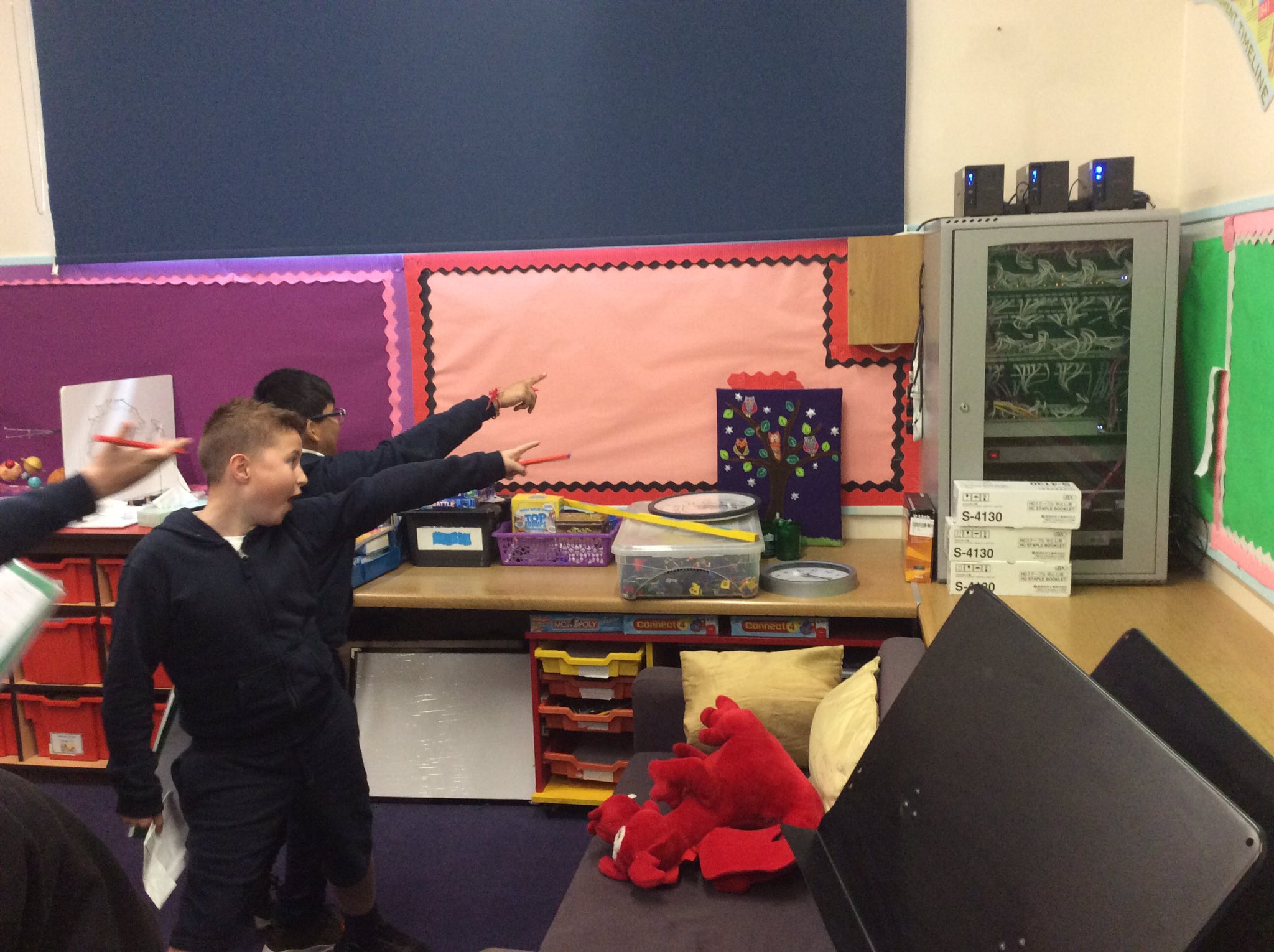
Below are some photos showing the children’s hard work in their books, and some of the displays in the classrooms and around school. You will notice that the work in books often reflects learning in other curriculum areas. Examples of such are below showing historical research with fossils in Year 3 and diary entries with the human body in Year 6.
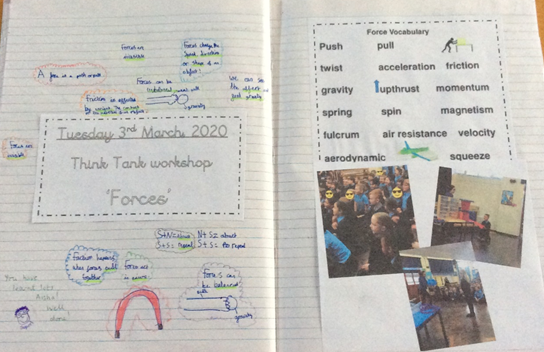
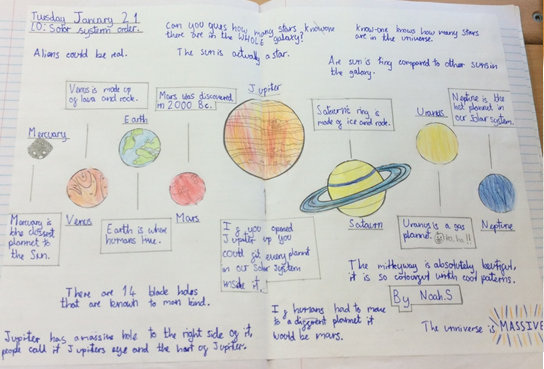
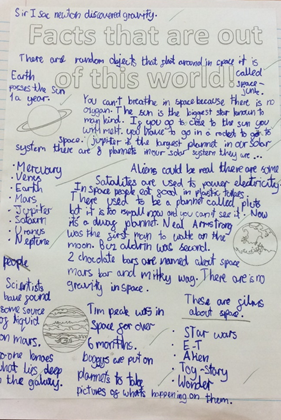
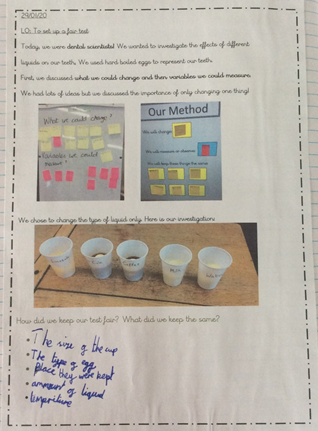
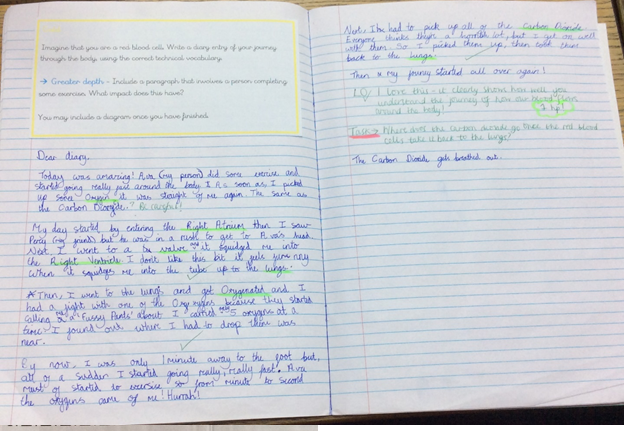
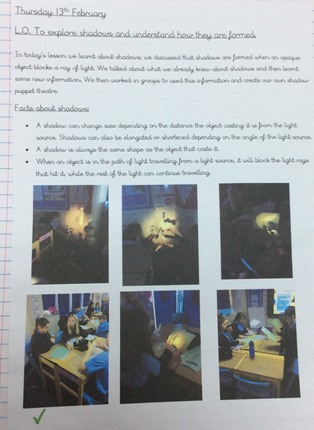
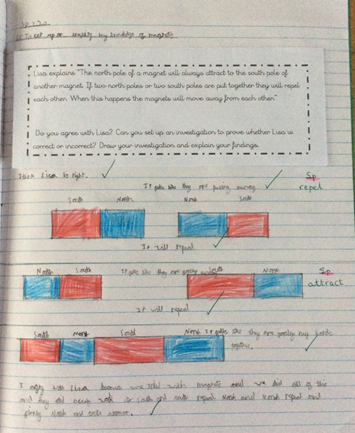
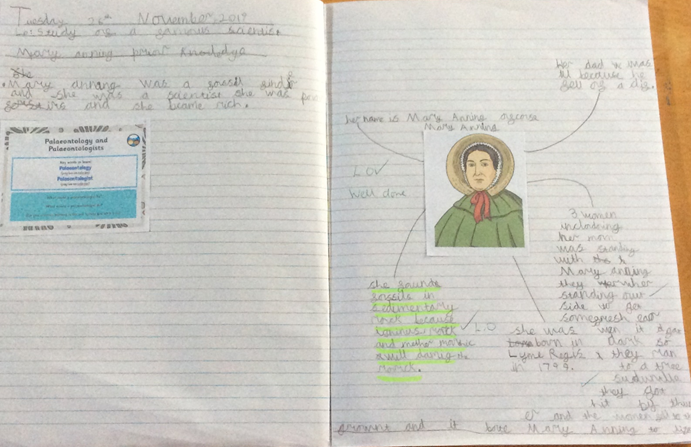
Our classroom displays change with each new topic to reflect the learning taking place and to support the children with key words, facts and challenges as well as giving children the chance to see their own work and ideas on the walls.
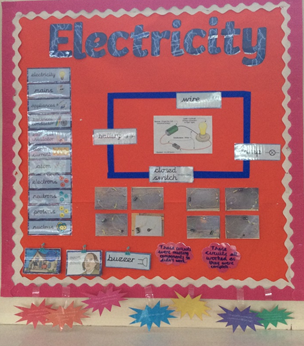
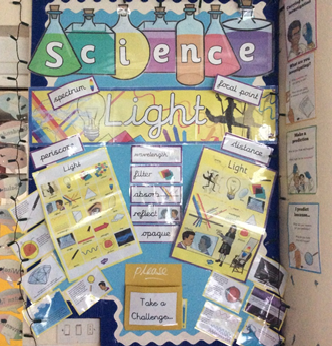
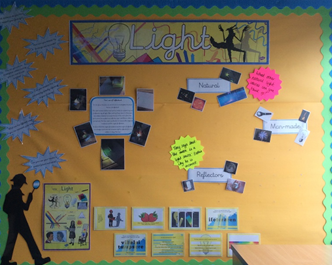
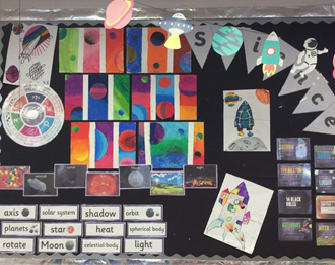
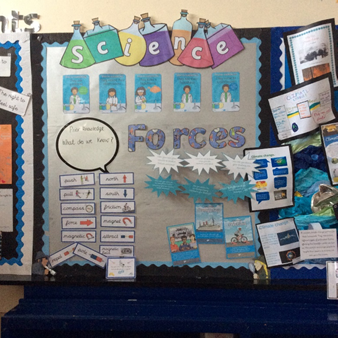
We have displays near the dinner hall where children can learn about nutrition, displays highlighting how science helped with the development of everyday items and a display asking children to research some famous British Scientists.
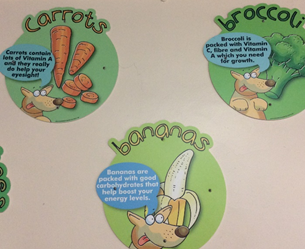
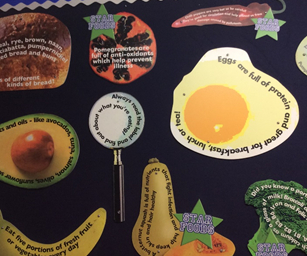
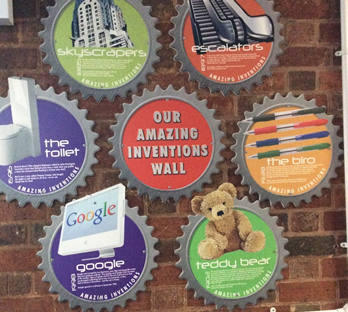
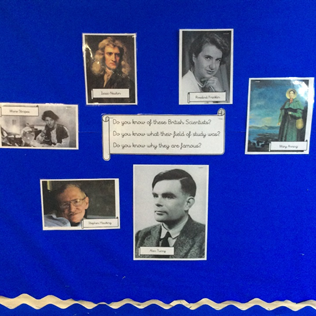
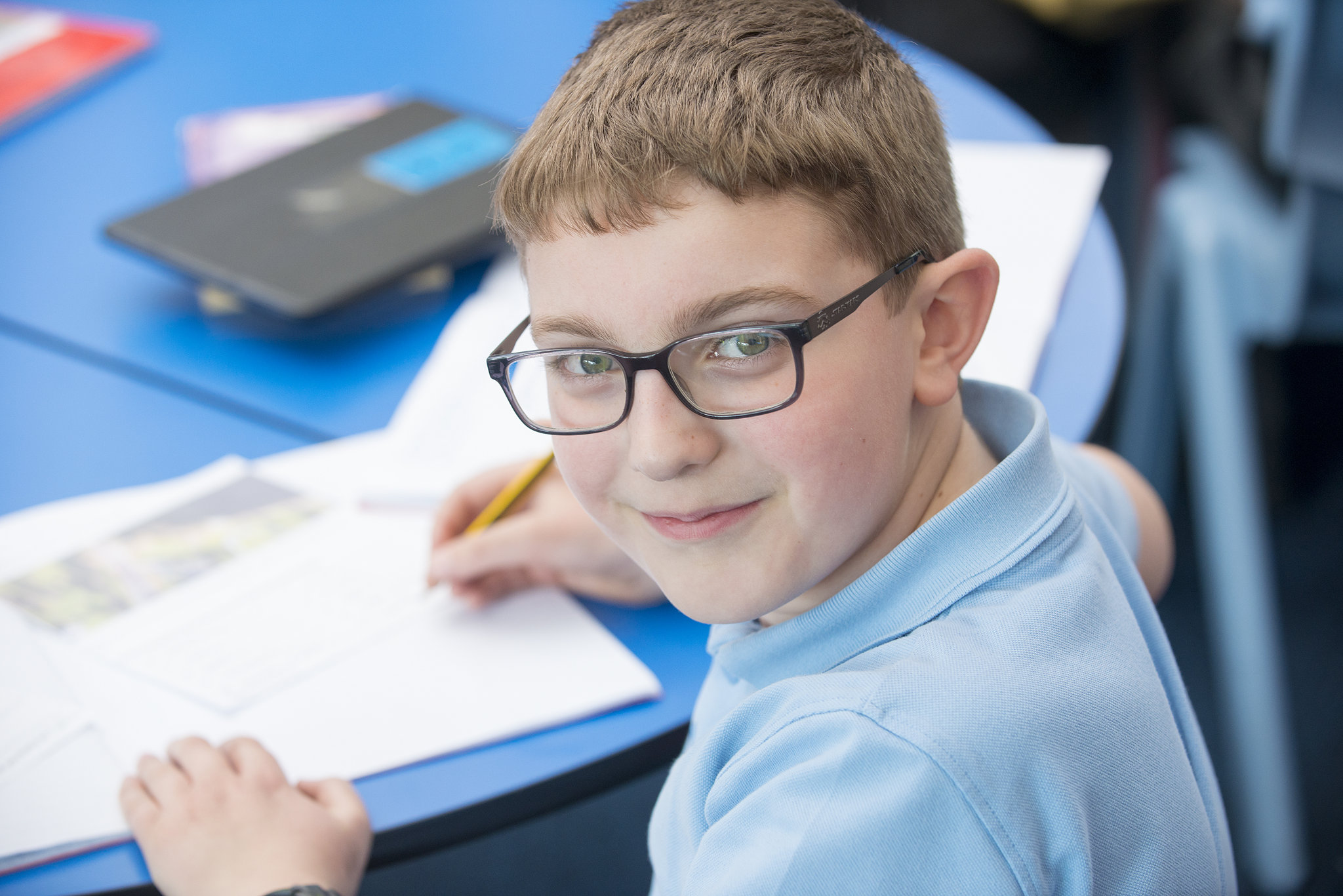
.png)
.png)
